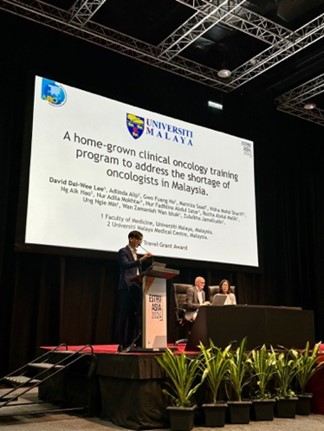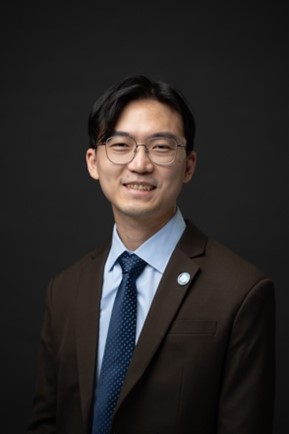Lee D et al.
ESTRO meets Asia 2024 Congress Report
At ESTRO Asia 2024, we spoke on developing and succeeding a home-grown clinical oncology training programme intended to address the national shortage of oncologists in Malaysia. In the 2000s, the Malaysian healthcare system grappled with a critical shortage of oncologists; it employed only 30 oncologists for a population of 23 million (one oncologist for every 766,666 people). Before 2002, Malaysia depended on foreign-trained oncologists to meet its oncologist requirements. This was challenging due to small intakes and the high cost of foreign training. The Ministry of Health, University of Malaya (UM) and University Kebangsaan Malaysia came together to build the local oncology programme, which led to the qualification of Master of Clinical Oncology, conferred by UM.
The programme spans four years and incorporates training in the delivery of both systemic and radiation therapies across all solid tumours. Trainees are rotated between academic institutions and community hospitals to gain well-rounded clinical experience. To date, the programme has produced 98 graduates. Now, with foreign-trained oncologists, Malaysia has 172 combined radiation, medical and clinical oncologists. To date, UM graduates make up 56% of the total number of oncologists in Malaysia.

Figure 1: Numbers of intakes and graduates of the Master of Clinical Oncology programme.
Some graduates have taken up posts as trainers, so the number of oncology training sites has increased from three to seven. The Ministry of Health has commenced new oncology services in four new hospitals: Putrajaya (the National Cancer Institute), Ipoh (the Raja Permaisuri Bainun Hospital), Kota Bahru (the Raja Perempuan Zainab II Hospital) and Kuantan (the Tengku Ampuan Afzan Hospital).
Most countries have separate medical and radiation oncology programmes, but the combined clinical oncology programme is well suited to meet the needs of Malaysia. UM is looking to expand the reach of the training programme; the first international candidate, from Maldives, enrolled in the programme in 2023. As Malaysia continues to advance its cancer treatment capabilities, the role of locally trained oncologists becomes more critical. Collaboration with other Asia-Pacific countries and the fostering of international partnerships will remain vital to refine and expand our home-grown oncology training model.
In conclusion, although the journey to fully address the shortage of oncologists in Malaysia is ongoing, the home-grown clinical oncology training programme offers a sustainable and scalable solution that can serve as a model for other nations that face similar healthcare workforce challenges. The growth of the programme is tangible and multifaceted, and ultimately is making oncology care accessible to Malaysians.


Dr David Dai-Wee Lee
Consultant clinical oncologist
Faculty of Medicine, University of Malaya, Malaysia
Email: david.lee@um.edu.my